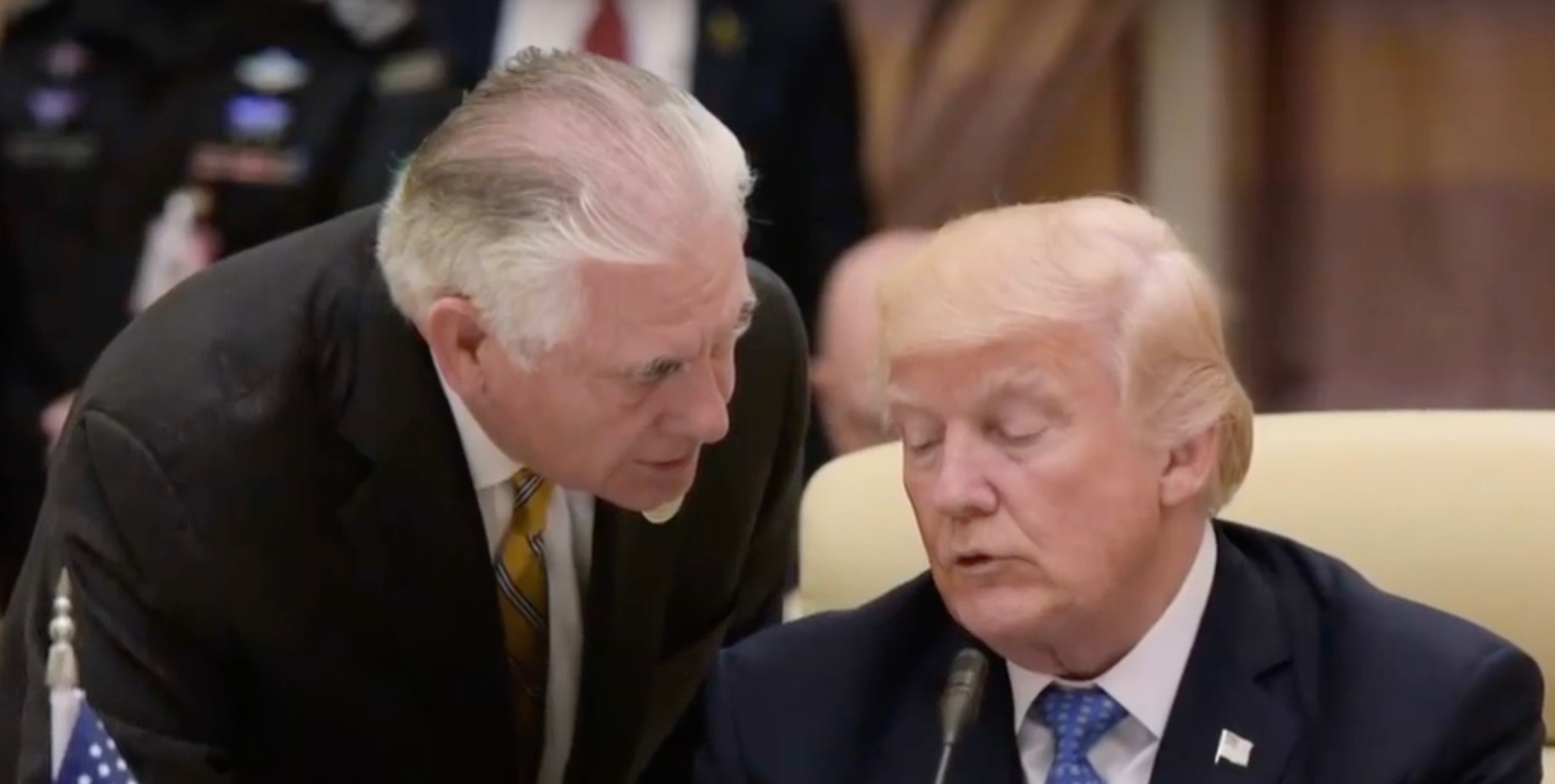
Donald Trump’s ideological purge
HAVANA – To explain Rex Tillerson’s dismissal, Donald Trump claimed “ideological” reasons that distanced him from his secretary of state and brought him closer to Tillerson’s replacement, Mike Pompeo, until then head of the CIA.
It is worth clarifying that when we talk about ideologies in this context, it is not to emphasize major philosophical differences, but to refer to each person’s vision regarding American society, the role of the United States in the world and the methods that the U.S. government imposes its dominance on an international scale. Above all, the battle between two divergent tendencies that face neoliberal globalization and its impact on the U.S. economy.
Neoliberal globalization is nothing more than the liberation of the world market. It is not about promoting free competition, but about taking advantage of the asymmetry resulting from differences in relative economic development in order to increase capitalist profitability. The United States was the great promoter of the global opening of the markets because its economic development allowed it to compete with an advantage. That is what has been failing and has been happening long before Donald Trump acceded to the presidency.
In the 70s the emigration of the North American manufacturing industry towards Europe and Asia was already such that Nixon decided to impose a 10% tax on imports. Prices in the North American market doubled, manufactures became less competitive and unemployment increased, especially in the iron and steel industries located in the “rust belt” states, which were decisive in the recent Trump victory and today constitute the seat of an important sector of their electoral base.
It was the time when, due to its high level of competitiveness and penetration in the North American market, Japan was considered by many as an enemy of the United States, and a current took hold referred to as “neo-isolationism”, which promoted the withdrawal towards control of the internal market. Precisely the same thing that Donald Trump intends to do with his protectionist policy.
Reagan tried to stimulate the economy by reducing trade barriers with Canada first and Mexico later. This is the origin of the North American Free Trade Agreement (NAFTA), which was supported by American investors and manufacturers, while being repudiated by the workers, for what it implied in job losses.
Paradoxically, both in Canada and in Mexico the idea produced a reaction by national producers who felt they would be crushed by the unfair North American competition, the same as Trump argues for today, but in the opposite direction. The reason must be sought in the deterioration of the U.S.’s competitiveness.
The current debate focuses on those transnational capitals that defend neoliberal globalization because it satisfies their interests. They expect the government to act accordingly, as opposed to those that depend on the protection of the internal market, whether they are entrepreneurs who want to eliminate foreign competition or employees interested in protecting their jobs.
When Tillerson, then a retired chief executive of Exxon Mobil, was appointed Secretary of State, the decision was interpreted as a sign of moderation and realism by the Trump government regarding transnational interests, which pleased the traditional establishment.
Although with little success, due to his own incompetence to deal with the government bureaucracy and the interference or the contempt of the president, everything indicates that that was indeed Tillerson’s intention, and in it lies what Trump now defines as ideological differences between the two. Trump did not forgive him for one day calling him a moron before a group of people, to which the president retorted that he was a genius. Since then it was known that we were in the presence of an announced death.
The appointment of Mike Pompeo as head of the CIA was a nod in the other direction. Sponsored by the ultraconservative billionaires David and Charles Koch, who at one time refused to support Trump, Pompeo rose to the House of Representatives representing Kansas and became one of the most prominent figures of the Tea Party, whose support is indispensable for Trump right now. His stay at the CIA places him among the most extreme and aggressive sectors of the current administration.
At almost the same that Tillerson was fired, so was Gary Cohn, economic adviser to the president and considered the representative of Wall Street in the White House, given his historical ties with Goldman Sachs.
Cohn was the architect of the tax reform, considered the president’s only legislative triumph. However, he was an opponent of the establishment of tariffs on steel and aluminum and, according to Trump, in this lies their ideological differences. In fact, they are different because protectionism contradicts the essence of neoliberal globalization. Larry Kudlow, a Fox TV commentator on the economy linked to the most conservative groups in the country, was named in his place.
Word is that the next victim will be General H.R. McMaster, National Security Adviser, considered another force moderating the most extreme tendencies of the president’s foreign policy. Which, in Trump’s own words, would open the door to canceling the nuclear agreement with Iran, and toughen positions in North Korea.
The appointment of Pompeo also foretells a greater role for the old hawks of U.S. policy towards Latin America and the Caribbean, especially against Venezuela and Cuba, where the Cuban-American extreme right is represented.
The recent changes decided by Donald Trump should not then be taken lightly. They reflect a very primitive political tendency based on extreme chauvinism that assumes that force – be it military, economic or political – is the resource par excellence to impose his conditions on the international scene.
Internally xenophobia and racism characterize these groups, effectively shaping an “ideology” that does not distance itself much from neofascism. That is what can be inferred from the current ideological purge. It should be considered worrisome.

